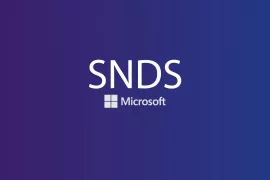The IP address is a key point in the field of emailing, and the reputation of this same address is essential to ensure the deliverability of your sending, as it is what will allow email providers to decide whether or not to deliver your messages. Therefore, it is very important to opt for the correct configuration, namely a shared or dedicated IP address. Here we explain the difference between these two choices, as well as their respective advantages and disadvantages, to help you better understand which is the best option for you.
What is the purpose of an IP address?
The IP (Internet Protocol) address is a unique number composed of several digits, used to identify a domain or a device connected to an internet network (computer, mobile phone, tablet, etc.). In the case of emailing, it allows you to send and receive messages on the various servers that identify themselves with this same address.
For sending emails, two types of IP addresses are available: the shared IP address and the dedicated IP address. The main difference between these two choices lies in the person or people who use this address.

The Shared IP Address
As the name suggests, this type of IP address is shared by multiple senders. Its reputation is therefore based on that of each user.
Advantages
- Low cost – A shared IP address is more affordable in terms of price since the cost is distributed among the various senders who use it.
- Good option for small sending volumes – A shared IP address is an excellent solution for companies that do not have many shipments to make (less than 100k emails per year).
Disadvantages
- No control over the reputation of the IP address – Other users with poor practices could negatively impact the deliverability of your shipments. For this reason, it is necessary to choose a serious shared IP address with a solid reputation.
Be careful here, the fact of “sharing” the reputation is a disadvantage indeed, but can also turn into an advantage. In fact, if this address is shared with senders who follow good practices to the letter, you will benefit from their seriousness and therefore the reputation of the used address. Likewise, you will not need to warm up your IP address before sending your emails, since it will already be acquired.
The Dedicated IP Address
A dedicated IP address is only used by one user or company. It is therefore exclusive.
Advantages
- Full control over the reputation of your address – The fact that you are the sole sender for this address allows you to manage its reputation from A to Z. Therefore, there is no third-party impact on it. All you have to do is adopt the best shipping practices to build a sender reputation that is trustworthy.
- Effective for large sending volumes (more than 100k emails per year).
- Possibility to act immediately in case of a reputation problem.
Disadvantages
- Need to warm up your IP address – If you immediately send bulk messages, email providers may be wary since the address is new. You therefore need to take the time to build a good reputation by gradually increasing your sending volumes.
- High cost – A dedicated IP address costs more since its cost is not shared with other users.
Wondering which type of address to choose? As you have read, both have their advantages and disadvantages. Everything therefore depends on your budget and your needs regarding shipments. A good solution could be to start by using a shared IP address, then, as your volume increases, opt for a dedicated IP address.







